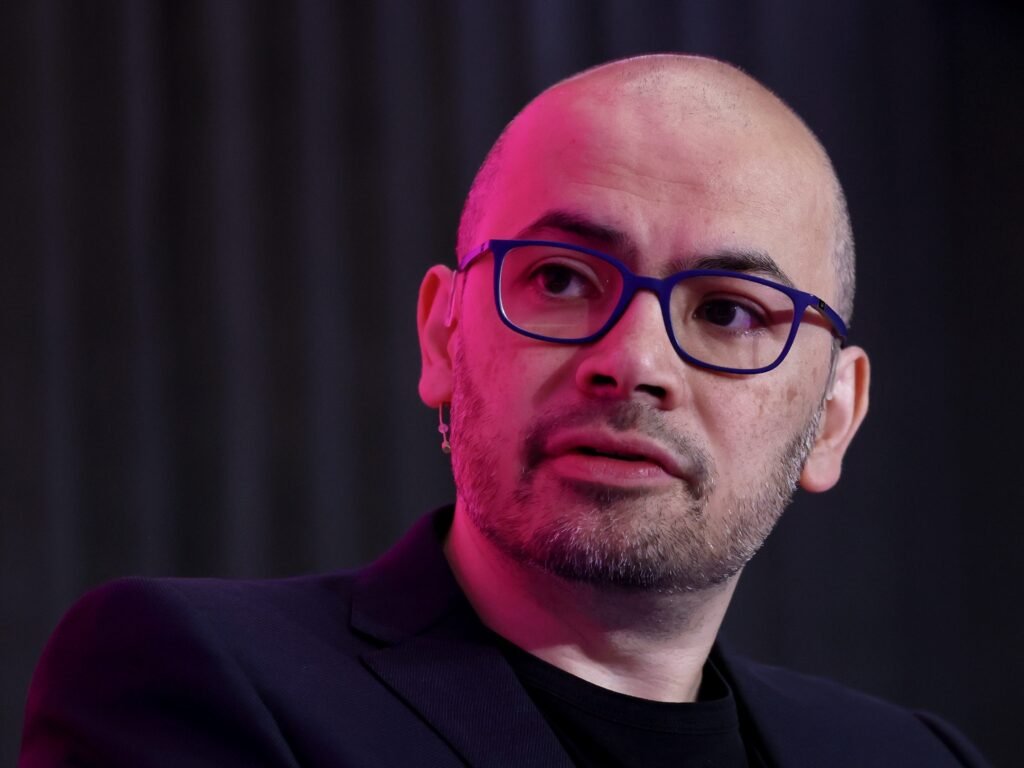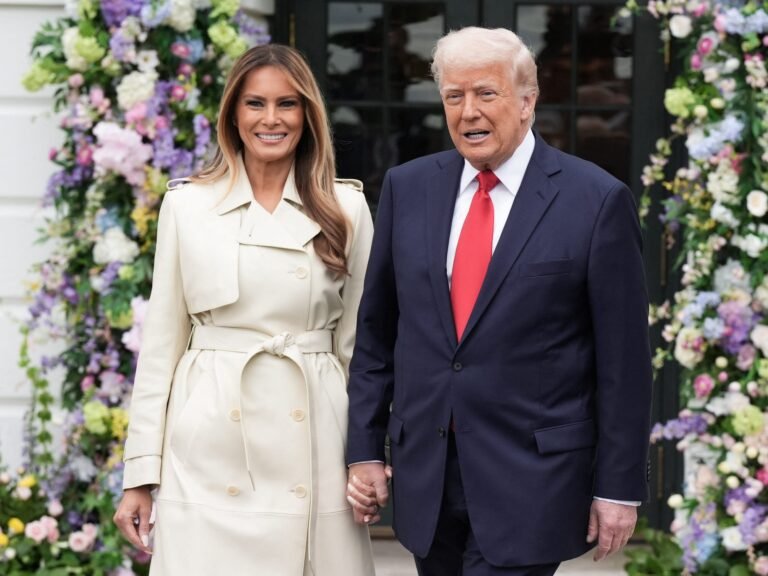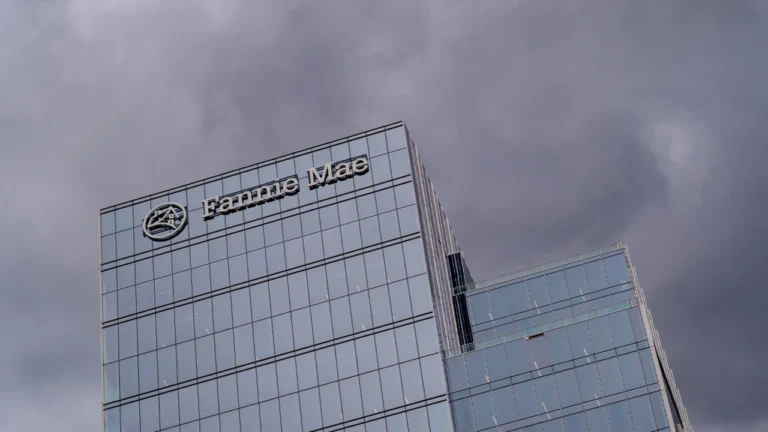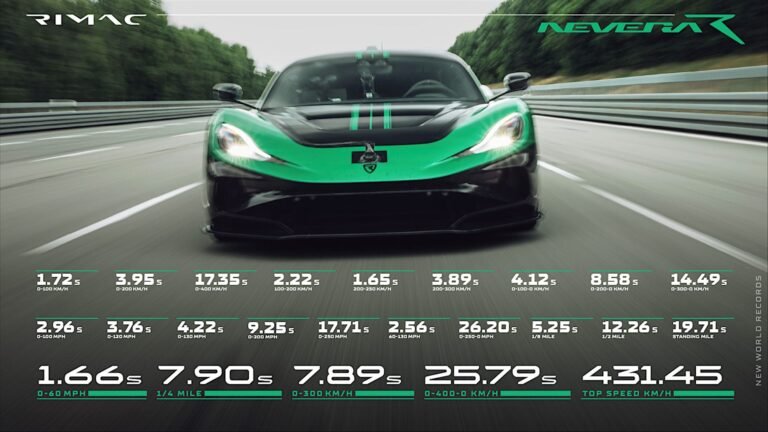
Jack Taylor/Getty Images for SXSW London
One of Google’s most powerful leaders is someone who long tried to distance his company from the search giant.
AI mastermind and chess wiz Demis Hassabis, who founded DeepMind and later sold it to Google in 2014, has been propelled into the center of Google’s universe in the past two years amid the frenzied race for AI dominance.
After years of trying to create more independence for DeepMind — shielding the AI research lab from the search giant — Hassabis was thrust into the belly of the beast in 2023 when Google merged DeepMind with its internal AI efforts.
Now, company insiders close to Hassabis say he is destined for even greater heights that may give him more control over the powerful AI technology he builds — and possibly one day lead the company.
Whether he’s interested in those ambitions is another matter.
For years, Hassabis hoped the AI race would be one led by academics and scientists in research labs, with international organizations to prevent AI’s misuse and to map humanity’s path through a new era of technological transformation.
Hassabis now faces the pressures of pushing the frontiers of AI and also building it into Google’s commercial products. He’s wrangling a 6,000-plus team inside Google’s AI engine room that has accrued increasingly more power and talent—Google DeepMind just poached the core team of the AI coding startup Windsurf, which rival OpenAI had previously planned to acquire.
The stakes have never been higher: He has to keep Google ahead of corporate rivals and keep the US ahead of China.
“His rise reminds me of Sundar’s,” said a longtime Google employee who has worked closely with Hassabis and Google CEO Sundar Pichai. “All of a sudden, you started hearing this name Sundar internally, and he kept having more and more responsibility, and all of a sudden, he was the CEO.”
“Demis’ rise has been similar,” the employee added. “Now, all of a sudden, he’s responsible for what is probably the most important team at Google right now.”
Business Insider spoke to more than a dozen company insiders for this story. They described how Google tapped its ultimate AI weapon in Hassabis, who has the makings of a CEO — and whose ascent within Google has come with trade-offs. Google declined to make Hassabis available for an interview.
Google’s AI battle plan
A British-born cognitive neuroscience Ph.D., Hassabis cofounded DeepMind in 2010 with the goal of one day creating a general-purpose artificial intelligence. In 2014, Hassabis sold the company to Google for $650 million with a caveat: It would create an AI ethics board that would limit how Google could use DeepMind’s technology.
In the years to come, Hassabis would take this further, fighting to create legal thicker walls between his lab and the search giant, BI previously reported. For one thing, DeepMind’s leaders worried that their AI would be used for military purposes.
After ChatGPT became a hit in late 2022, Google leaders ordered several pivots inside the company to address the potential threat to the search giant’s business. In DeepMind earlier that year, Hassabis had told staff that he planned to reorient his lab toward building an AI assistant. One former employee said they were confused at the time as to how DeepMind could ever build something that would directly compete with Google’s own Assistant.
It soon didn’t matter. In 2023, after talks to secure DeepMind’s independence failed, Pichai announced the unit would fuse with Google’s internal AI lab, and they merged their AI assistant efforts. Google was caught flat-footed by OpenAI’s ChatGPT and needed a battle plan. Google DeepMind, a fusion of the company’s two premier AI labs, was the answer, and Hassabis is in its driver’s seat.
Hassabis has done more managing than ever since. Merging DeepMind with the Brain team from Google Research meant Hassabis had to oversee the merging of two units that historically had behaved more like competitors than colleagues.
Years before the merger, things had gotten so bad between both organizations trying to scoop one another that Hassabis had DeepMind’s code locked so it wasn’t visible to Google employees. Now, bringing them together meant deciding who should sit under whom, leading to some political infighting, according to multiple people who were there.
DeepMind also used different programming technology than Google — a decision Hassabis made to avoid dependencies on Google teams — and so the merger posed a large technical challenge. A Google spokesperson said these issues had since been resolved.
Thrusting Hassabis into the driver’s seat gave him more power but less control. For example, Hassabis has had to change his stance on what were once red lines: In February 2024, Google dropped a pledge made in 2018 not to use its AI for military purposes, following the rest of Silicon Valley. Hassabis cosigned a blog post defending the decision.
“Since we first published our AI Principles in 2018, the AI field has evolved substantially, and we’ve updated our Principles to more effectively meet the environment of today. Our core commitment remains: benefits must substantially outweigh harms,” a Google spokesperson told BI in a statement.
In the merger process, dozens of DeepMind employees left for other labs, pushed out by internal politics and pulled away by a red-hot AI job market. A pullback on publishing certain types of research also rankled some staff, insiders said.
“Some people joined an academic research lab and suddenly they’re being asked to build products, and that’s not what they wanted,” a former DeepMind employee said.
Others were excited by how Google had been shaken out of its slumber, especially when cofounder Sergey Brin returned to the trenches.
The merger has required Hassabis to play a hand in the sorts of Google politicking DeepMind had for a long time avoided to some degree.
AI Studio, Google’s AI developer platform, was previously part of Google’s Cloud organization and became a point of contention when teams working on Google’s other AI cloud platform, Vertex, saw AI Studio as a competitor internally, according to two people familiar with the matter. The AI Studio team moved to Google DeepMind earlier this year, a resolution that Hassabis helped broker, one of the people said.
A spokesperson said that both those products serve different purposes and that DeepMind and Google had historically collaborated.
“There have been many shared views and ways of working between the two teams, and the merger has been very smooth,” they said.
CAMILLE COHEN/AFP via Getty Images
Hassabis’ new position has some employees wondering if he is being groomed to succeed Pichai and if the CEO chair could give him the level of control over Google’s AI he has always wanted.
After all, if Google transforms into the AI-first company Pichai promised in 2016 — the ultimate form of Google, as cofounder Larry Page once saw it — Hassabis is the smartest bet, insiders say.
“My opinion is this is not going to happen,” said another person who knows Hassabis. “But I’m less certain about that than I was a year ago.”
Others close to Hassabis believe he wouldn’t care for such responsibilities. Running Google means overseeing a search business and an advertising empire. It means wrangling a vocal and sometimes unhappy workforce. It means being dragged in front of Congress to answer uncomfortable questions. Above all, it means keeping shareholders happy.
“He does it because he knows the company needs it,” said one former executive regarding Hassabis’ elevated position running Google DeepMind. “But being CEO would push him away from the things he wants to do. This guy wants to cure cancer.”
Who is Demis Hassabis?
For Hassabis, the past two years have punched up an already powerful résumé.
He was a chess prodigy at age 4 and master standard by 13. At 17, he joined the computer game company Bullfrog, where, after completing his studies, he later returned to build a multimillion-selling video game (Theme Park; you might have played it). In 2010, he co-founded DeepMind, one of the world’s most powerful and successful AI labs.
In 2024 alone, he oversaw a series of Google AI product launches, earned a Nobel Prize for his work on DeepMind’s protein folding project, and even slipped in a knighthood for “services to artificial intelligence,” bestowed upon him by King Charles III.
People who have worked with Hassabis describe him as a double threat: He’s incredibly smart and can dive deep into technical topics. He also has the charm and charisma to stand in front of thousands of people and make them believe AGI will happen — and that he’ll be the one to lead them there.
Devang Agrawal, a former DeepMinder, recalled how he was studying for his undergraduate degree when Hassabis visited his university and gave the students a demo where an AI system used reinforcement learning to play Atari games. Agrawal was sold on the mission, and a few years later, he was working for Hassabis.
“I think Demis has this really brilliant quality about him, to talk in an inspirational way,” said Agrawal.
“Demis is very good at convincing you that you and him together are going to change the world,” said another former DeepMind employee.
Hassabis can also be fiercely competitive, colleagues and friends say.
Pascal Le Segretain/Getty Images
When asked about Elon Musk’s AI ambitions during an interview at Davos in January, Hassabis remarked, “I think I got him into AI in the first place.” In an interview with The New York Times last year, he said of fellow DeepMind founder and now Microsoft competitor Mustafa Suleyman: “Most of what he has learned about AI comes from working with me over all these years.”
DeepMind and Google’s awkward dance
While he’s risen as a corporate leader, people who know him say Hassabis sees himself first as a scientist. His work on AlphaFold, a project for predicting the protein structures of the human body, resulted in a new spin-off company and garnered him his Nobel Prize.
“I want to understand the fundamental nature of reality,” he said during a fireside chat at Davos in January.
For him, AI is a tool to do that, and he’s most comfortable when discussing the Nobel-winning breakthroughs of protein folding and the potential for AI to eradicate diseases.
“If I could wave a magic wand and create the ideal setup, everyone would be working on more narrow AI tools like AlphaFold, ” he said at a recent fireside chat at Queens’ College at Cambridge University. “But the technology hasn’t turned out that way.”
After Google bought DeepMind, the AI lab embarked on an initiative — codenamed “Watermelon” and later called “Mario” — to create thicker walls between its group and its funder. It wanted to protect its valuable creations and prevent them from being used for military or surveillance purposes.
To some employees who spoke to BI, the initiative made no sense. Why would Google spend hundreds of millions of dollars to acquire a company it could not control? Hassabis knew he was racing against the clock, multiple former and current DeepMind employees said. One recalled a presentation Hassabis once gave that finished with a warning that AI would eventually become a race.
“To be one of the people at the table to stop other people from doing bad, you also need to be at the forefront,” that person said.
Jack Taylor/Getty Images for SXSW London
In April 2021, Hassabis gathered his employees to announce that the bid to form a separate legal structure had indeed failed. Hassabis spun it as a win: it meant DeepMind would continue to have access to Google’s vast computing power, necessary for building vast AI systems and ultimately, Hassabis hoped, artificial general intelligence — a hypothetical level of machine intelligence that surpasses human cognition across a range of areas.
What DeepMind most lacked was leverage. When Hassabis sold the company to Google in 2014, the AI landscape looked starkly different. Before selling to Google, a person familiar with the matter said Hassabis considered forming a second company to build video games and fund DeepMind’s research.
Google’s $650 million price tag looks like a bargain when compared to OpenAI’s $6.6 billion funding round or the $14.3 billion Meta is spending to invest in Scale AI.
Hassabis was simply too early.
“In 2014, DeepMind didn’t have enough money,” said another former DeepMind employee “They needed to raise it to work on something that seemed crazy to most people.”
Google cofounder Page convinced Hassabis to sell, promising to give DeepMind a large amount of independence. The arrangement allowed DeepMind to continue its research without being part of Google’s corporate bureaucracy, while also giving the company access to what would become more valuable than anything else: compute power.
“Whereas today there’s enough interest where you can raise enough money without giving away the whole company, so they get to retain control. I can just imagine that’s how Demis would prefer things — to be in control,” one former employee said.
Demis Hassabis is on the quest for AGI
Hassabis now walks a difficult line between his own interests regarding AGI and those of Google’s shareholders. Running Google’s control room now means pushing the frontiers of AI research while infusing it into the company’s suite of products, from Search to Maps to Workspace. Over the past year, the team has absorbed more parts of Google, including the team for its Gemini chatbot, consolidating more power under Hassabis.
At the same time, Google DeepMind has scaled back the types of papers it publishes to prevent rivals from taking Google’s ideas. Research breakthroughs relating to Gemini or the pursuit of AGI now stay within Google’s walls, according to multiple people familiar with the strategy — another compromise Hassabis has made as the capitalist engine spins into overdrive.
It’s a change in tune from 2016 when Hassabis told Bloomberg Businessweek that work on AI should be carried out in an “open way” and that DeepMind did this by “publishing everything we write.”
“I think ultimately the control of this technology should belong to the world, and we need to think about how that’s done,” he said.
“Google DeepMind has always been committed to advancing AI research, and we regularly update our policies to preserve the ability for our teams to publish and contribute to the broader research ecosystem,” the Google spokesperson told BI.
Almost a decade later, Hassabis appears to still be wrestling with his concerns, though it’s unclear if he has the power to do much about them while running Google’s corporate AI engine.
At SXSW London in June, Hassabis again called for international cooperation to better safeguard the transformative technology he sees coming.
In recent years, he has become more vocal about his concerns that the world is not ready for AGI. At I/O in May, he and Brin predicted AGI would arrive around 2030.
People aren’t thinking enough about AI’s long-term implications, Hassabis has said.
“What’s going to happen in the next five, 10-year timescale is going to be monumental,” he said at Davos earlier this year, “and I think that’s not understood yet.”
“But I do think we should be thinking very carefully about these next steps.”






